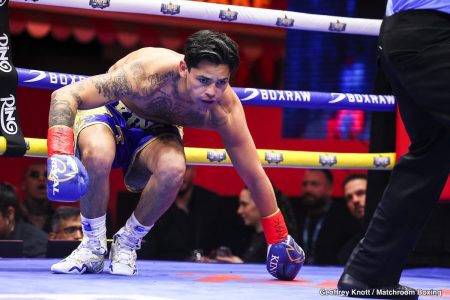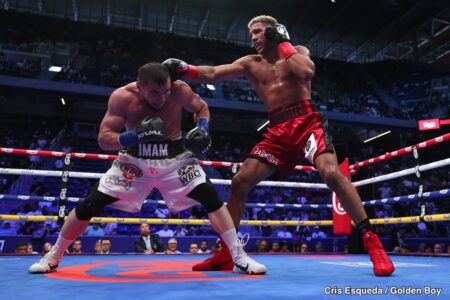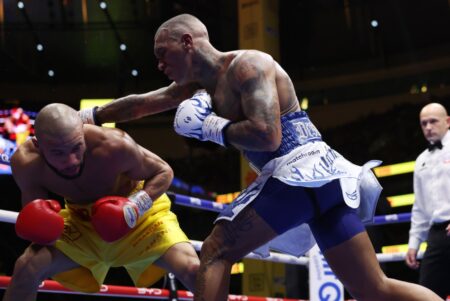The UK’s Heavyweight Dominance and the Usyk Exception
Promoter Frank Warren has boldly declared that, excluding Oleksandr Usyk, the UK has become the epicenter of heavyweight boxing. This statement is rooted in the current landscape where the majority of top contenders are British. However, the core of Warren’s assertion is challenged by the undeniable fact that Usyk is the most talented and dominant heavyweight in the world. His prowess on the ring is unmatched, and his removal from the equation reveals a landscape of domestic-level fighters who struggle to compete at the highest level.
The Current State of UK Heavyweights
When Usyk is taken out of the picture, the quality of UK heavyweights diminishes significantly. Daniel Dubois, often touted as the best homegrown talent, has shown vulnerabilities under pressure. His tendency to fold in critical moments has raised doubts about his ability to sustain success at the elite level. Similarly, Moses Itauma, an improving prospect, faces the risk of being exposed to the same fate as his brother, Karol, when matched against talented opponents. This pattern of inadequacy extends to other notable names in the UK heavyweight scene.
The Old Guard and Their Limitations
The older generation of UK heavyweights has also reached its twilight years. Anthony Joshua, at 35, and Tyson Fury, at 36 (now retired), are past their prime. Their recent performances have been less than stellar, with both fighters failing to deliver the consistent results that once made them world champions. Derek Chisora, at 41, and Dillian Whyte, at 36, similarly rely on a steady diet of overmatched opponents to secure paydays, rather than challenging for titles. The domestic-level heavyweights like Fabio Wardley, Lawrence Okolie, and Joe Joyce, while competent, lack the talent and international exposure to compete at the highest echelons of the sport.
The Myth of UK Heavyweight Supremacy
Warren’s optimism about the UK’s dominance in heavyweight boxing is predicated on a misleading narrative. While it is true that many of the top contenders are British, the quality of these fighters is often overrated. The absence of credible competition within the domestic scene allows these boxers to maintain a facade of success. However, when pitted against genuine world-class talent, they frequently fall short. The reality is that the UK’s heavyweight contingent is heavily reliant on Usyk’s presence to validate its standing in the global boxing community.
Emerging Talent and International Competition
While the UK struggles to produce consistently high-caliber heavyweights, other regions are showcasing more promising talent. Martin Bakole, Jared Anderson, and Bakhodir Jalalov are emerging as formidable threats, outshining the majority of British fighters. Bakole, in particular, despite his Congolese origins, has demonstrated a level of skill and potential that is unmatched by his British counterparts. These international prospects serve as a stark reminder of the gap that exists between the UK’s domestic talent and the global elite.
Conclusion
Frank Warren’s assertion that the UK is the center of heavyweight boxing without Usyk is a stretch. The current crop of British heavyweights, while numerous, lacks the quality and resilience to consistently challenge for world titles. The reliance on Usyk to bolster the UK’s status in the heavyweight division highlights a deeper issue: the underwhelming nature of the domestic talent pool. As the sport continues to evolve, the UK will need to develop a new generation of heavyweights capable of competing on the world stage, rather than relying on the fleeting success of a few domestic champions.











